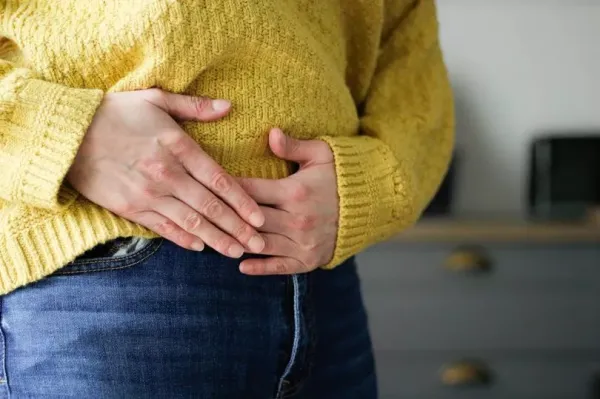
A GP has highlighted period symptoms women should not overlook and has underscored the importance of seeking medical advice when affected. A full list of 23 'abnormal' symptoms can be found below, with the urged not to suffer in silence.
While periods can be an inconvenience for many, for others, they can become seriously debilitating. Severe symptoms are not normal, and individuals suffering from them should not hesitate to ask for help, reports .
Dr Stephanie Ooi, an ex-NHS GP who now works at a private practice in London, has collaborated with Active Iron to raise awareness about menstrual fatigue and other concerning symptoms millions of women 'just put up with'. She explains: "Many women believe that painful periods are something that they just have to get used to, but if any symptoms are having a big impact on your life then speak to your GP."
READ MORE:
READ MORE:
A certain degree of tiredness may be usual during menstruation; however, Dr Ooi alerts that symptoms like fainting or experiencing dizziness are not typical. From a survey by Active Iron, it was found that 7.8% of the participating women had fainted at least once during their period.
Dr Ooi remarks: "If your period regularly leaves you lightheaded, it could be a sign of low or hormonal shifts. If you pass out during your period, it's time to see a doctor. No one should be dealing with that every month."
For some, mild queasiness can be a normal side effect of menstrual cramps. Nonetheless, if you're experiencing persistent vomiting, severe discomfort that disrupts daily life, or finding it challenging to eat, it's essential to seek medical attention, Dr Ooi cautions.

Dr Ooi warns: "Severe pain that makes you physically sick isn't something you should just put up with, and a medical professional might have the solution for you. It could also indicate an underlying issue that needs to be diagnosed." According to the survey, almost one in ten women has experienced vomiting on at least one occasion as a result of their menstrual cycle.
Dr Ooi notes that if your sanitary products repeatedly get soaked through or need to be changed more frequently, or if you need to use more than one method of protection, this could be a sign of an unusually heavy menstrual flow. While passing small blood clots during your menstrual cycle is considered typical, Dr Ooi indicates that if they're larger than a 10p coin, it might indicate a heavier period.
Dr Ooi advises: "Your GP can carry out tests to determine the cause of your heavier bleeding and, if appropriate, offer advice on things that can help." The former GP cautions that having an unusually heavy menstrual cycle can lead to fatigue, as excessive blood loss can lead to lower iron levels.

She said: "Heavier bleeding can cause fatigue, low iron and impact your ability to carry on with your daily activities. Blood loss depletes iron levels during a normal period, so if you have heavier menstrual bleeding, your iron levels could be considerably lower. There are solutions out there that can help and speaking to your doctor is the first step."
A recent survey conducted by Active Iron indicates that up to 67% of women have experienced heavier periods at least once, with one in five women facing this issue every cycle. Should you find your menstrual cycles becoming significantly more painful, heavier, or irregular, or if you encounter bleeding between periods, an unpleasant-smelling discharge, or severe pain, it's crucial to seek medical advice.
Several medical conditions can contribute to "bad periods," including heavy bleeding, painful cramps, or irregular cycles, including polycystic ovary syndrome (PCOS), endometrial polyps, endometriosis, fibroids, adenomyosis, pelvic inflammatory disease (PID), and bleeding disorders like Von Willebrand disease.
The NHS says: "Irregular periods are not usually a sign of a problem. But speak to a GP if your periods are irregular or your normal pattern of periods changes." Below are some warning signs that might indicate a problem with your menstrual health.
Heavy or prolonged bleeding:Sometimes, conditions like polycystic ovary syndrome (PCOS) and an underactive thyroid gland can cause irregular periods.
Following the survey results, Active Iron is urging women to address menstrual fatigue and engage with their healthcare providers. Developed by scientists at Trinity College Dublin, Active Iron aims to counteract the adverse side effects many women experience with oral iron supplements.
Active Iron’s formula is designed to minimise side effects, including gut discomfort and constipation while maximising iron absorption. Active Iron is clinically proven to as a result. , which targets the body’s natural site of iron absorption, the DMT-1.